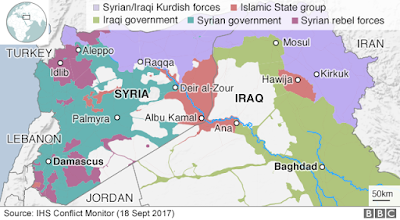From 711 to 1492, Muslim conquerors ruled parts of Spain, which they called al-Andalus.
As with everything about Islam, what sort of rulers they were is a matter of controversy.
In Part I of this series I reviewed The Ornament of the World: How Muslims, Jews, and Christians Created a Culture of Tolerance in Medieval Spain by the late Yale University professor María Rose Menocal. According to her, Muslim Spain was “the chapter of Europe’s culture when Jews, Christians, and Muslims lived side by side and, despite their intractable differences and enduring hostilities, nourished a complex culture of tolerance.” She paints a Spain where caliphs like Abd ar-Rahman III built spectacular palaces and populated them with scholars and poets. Jews like Samuel ibn Nagrillah rose to lead armies and rule at the side of kings. Christian youth were so eager to assimilate into this shimmering culture that old fogeys like Alvarus of Cordoba complained Arabic was all the rage among them. Kids today. They completely neglect Latin. Philosophers like Averroes and social scientists like ibn Khaldun pushed the boundaries of scholarship. And absolutely everyone was a poet, churning out ingenious new forms of verse to celebrate the charms of their lady loves, forms that would go on to lay the foundation for Christian Europe’s troubadour culture.
Part II covered The Myth of the Andalusian Paradise: Muslims, Christians, and Jews under Islamic Rule in Medieval Spain by Darío Fernández-Morera of Northwestern University, and that book paints a very different portrait. The conquest of the peninsula was bloody. Captured women were sold into slavery, to be raped in the harem. The shari’a imposed severe restrictions on non-Muslims. In Cordoba, between 850 and 860, some four dozen Christians were murdered for the “crime” of declaring the divinity of Christ. And anti-Jewish riots killed many, including Samuel ibn Nagrillah’s son Joseph.
Interestingly, Menocal and Fernández-Morera don’t disagree about facts. Their differences are over interpretation.
Menocal acknowledges episodes of intolerance like the anti-Jewish riots and the Martyrs of Cordoba. But she dismisses them. “It would be foolish,” she writes, “to suggest that this was a world devoid of all manner of intolerance and darkness. What age, no matter how golden, is?”
Similarly, Fernández-Morera acknowledges the spectacular courts of the caliphs existed. But he dismisses them. They weren’t typical of the life of the common people.
Thus, the two authors mirror each other in their confirmation bias: both are quick to grasp the smallest factoid that supports their hypotheses. But inconvenient bits of data that contradict them are dismissed as the sort of thing that can happen in any society. Of no importance whatsoever.
So who’s right?
In my humble opinion, both. Fernández-Morera was right that Muslim Spain was far from a paradise. And yet Menocal was right that its remarkable achievements really did make it the Ornament of the World.
The glittering courts, with their vast libraries and spectacular gardens, really weren’t typical of the life of the average Andalusian—but they still glittered.
The women who enflamed the romantic ardor of poets really were sex slaves—but the verses they inspired were no less heartfelt or influential.
Averroes really was exiled by his fellow Muslims, and ibn Khaldun ignored—but their accomplishments in philosophy and social science were no less remarkable.
Non-Muslims really were second class citizens under the shari’a—but many of them nevertheless rose to the stratosphere of Muslim society.
Jews really were persecuted because they were so successful—but they were successful.
Muslims really did murder Christians who insisted on broadcasting their faith—but to the chagrin of Alvarus of Cordoba, the pageant of Islamic culture enticed legions of others to assimilate.
In short, Muslim Spain was a case study in Dr. Zuhdi Jasser’s “Two Islams” hypothesis, which he explained in his book A Battle for the Soul of Islam. There’s the Islam he grew up with, which taught him that “Christians and Jews were my brothers and sisters, ‘People of the Book.’” And there’s political Islam or Islamism, which he first encountered during his college years. That pernicious doctrine preaches that “Islam comes before all else, and everything should be done to make this religion the dominant one in the world and for laws to based not on secular agreement but purely on shariah.”
Just as both of these two Islams exist today, so they existed side-by-side in Muslim Spain. To insist it was all one or all the other, besides being far less interesting, is to cling to only half a truth.
Michael Isenberg writes about the Muslim world, medieval and modern. His forthcoming novel, The Thread of Reason, is a murder mystery that takes place in Baghdad in the year 1092 and will be the first in a series that depicts how the Muslim world committed cultural suicide during the Middle Ages.
Photo Credit: Michael Isenberg









































